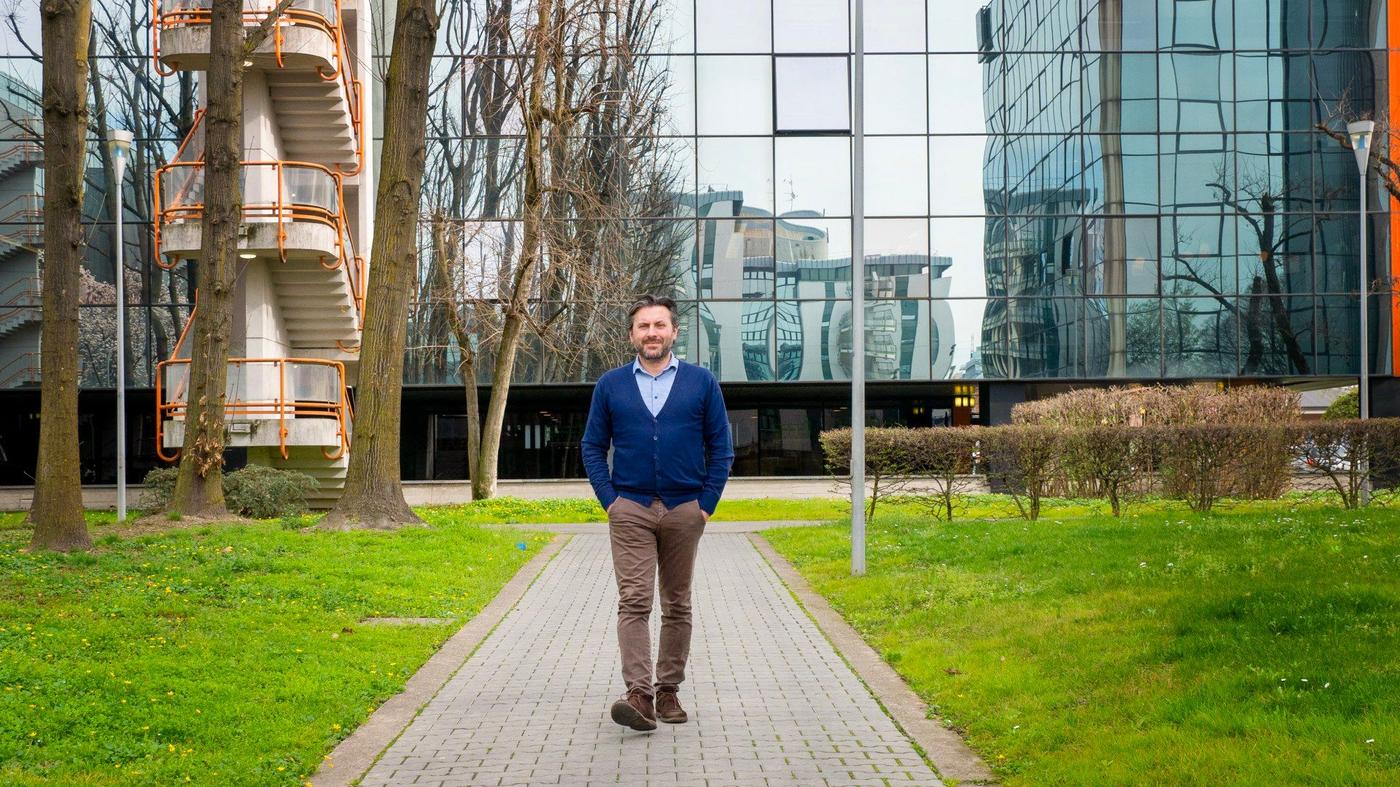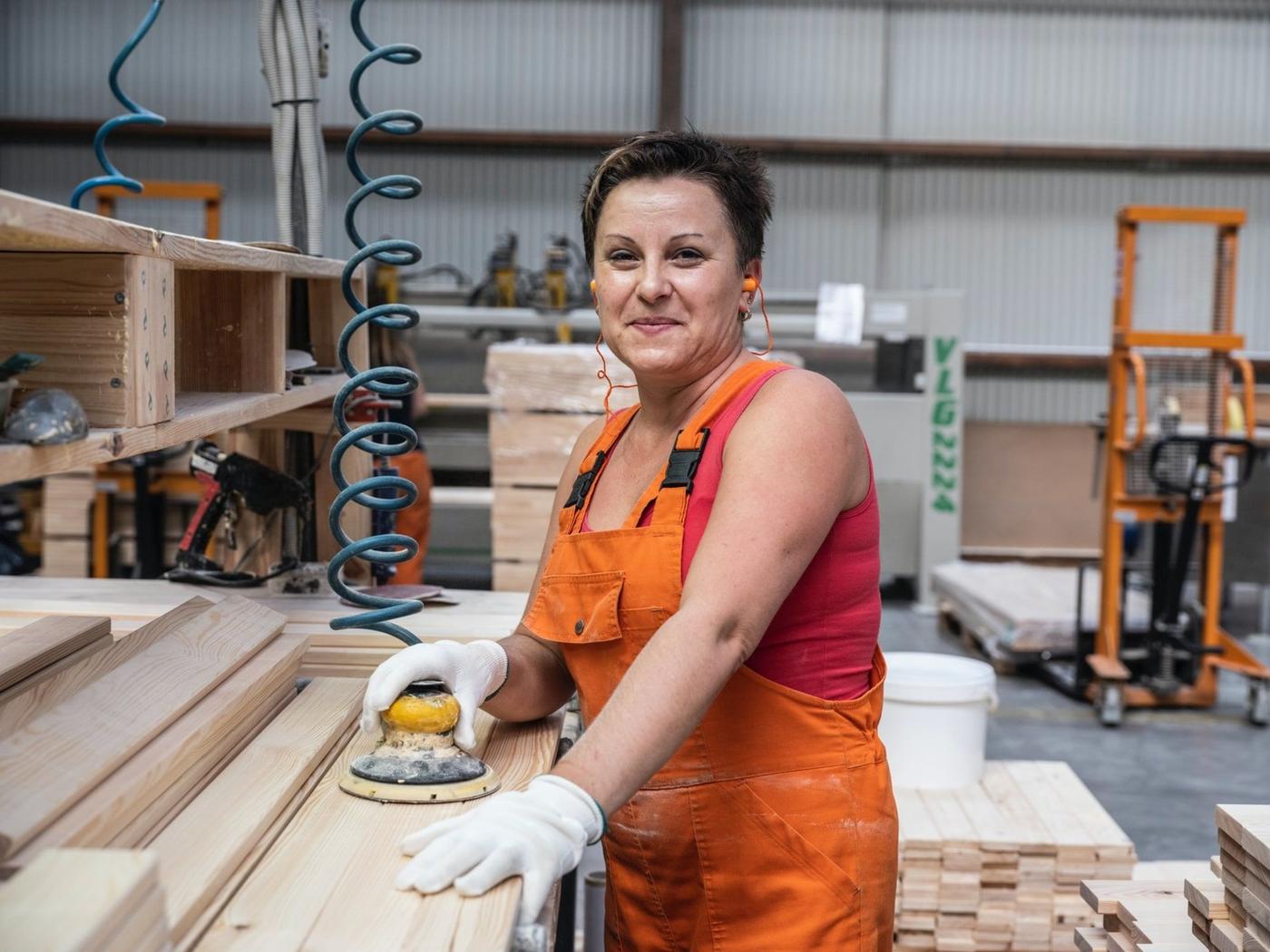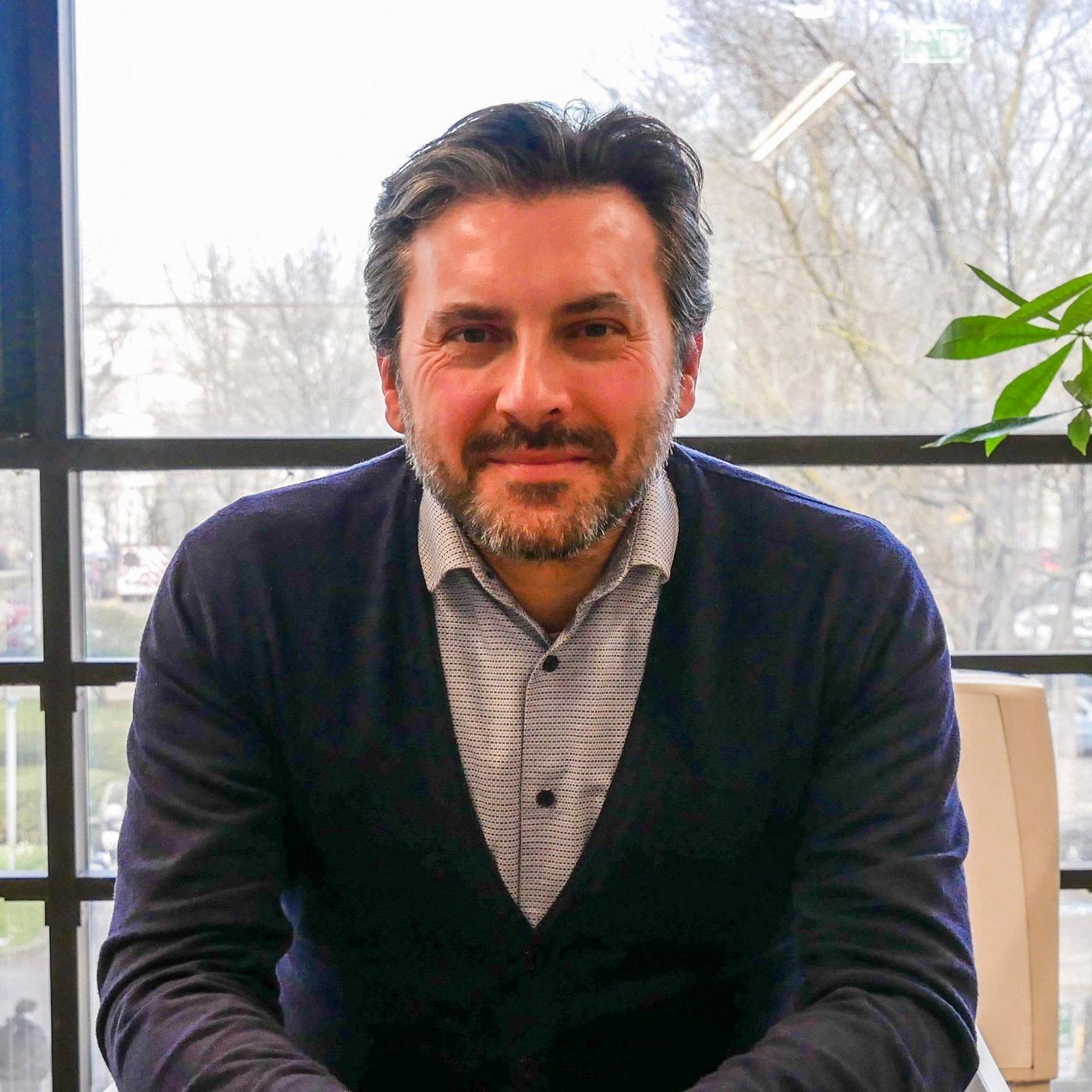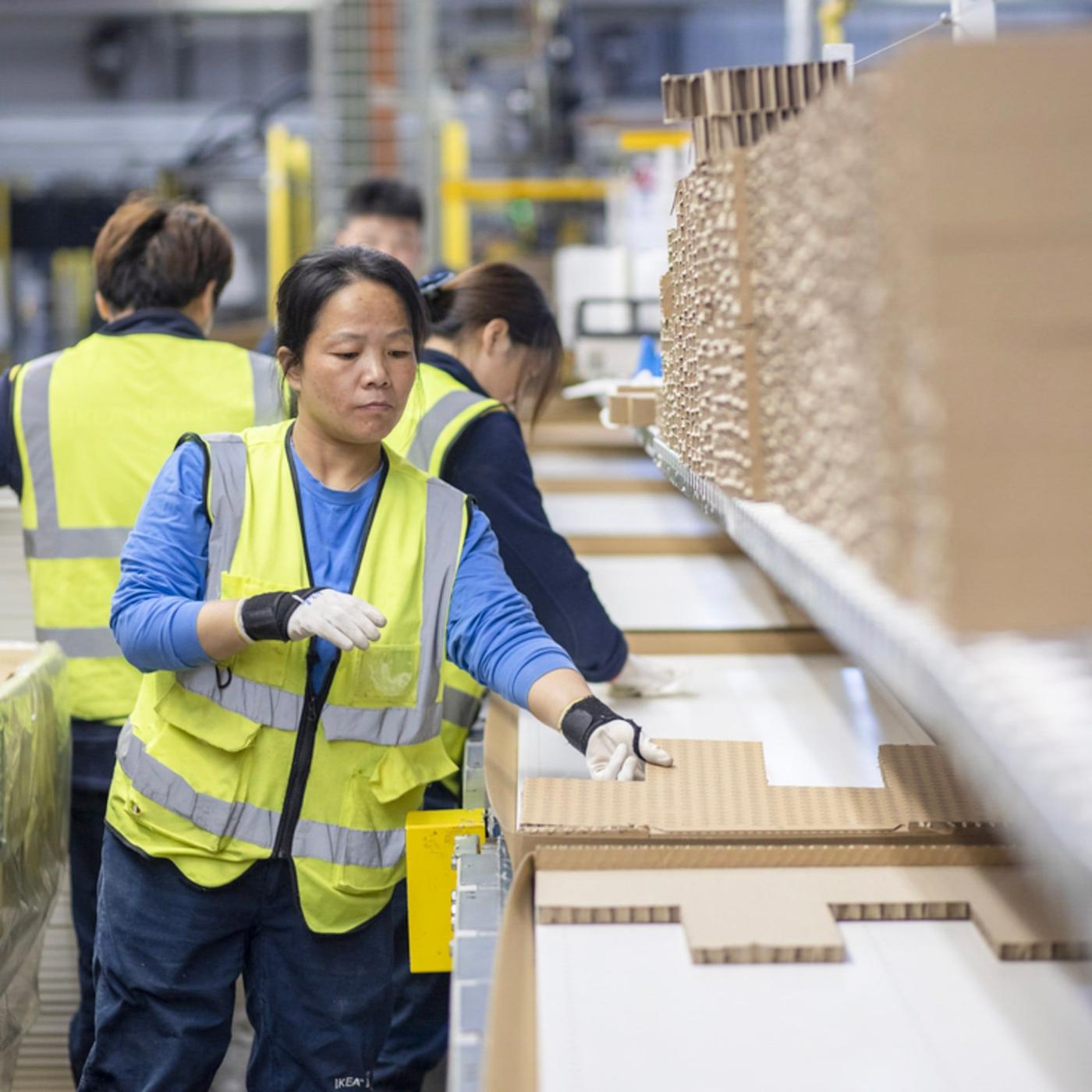
The IWAY auditing process – ten principles for building a responsible supply chain
When you bring an IKEA product into your home, you choose it because it's affordable, well-designed and serves its intended functions. But that's not all; there is more to the product than meets the eye. Workers have produced the product responsibly in a healthy, safe, and respectful environment. To ensure that all IKEA products are made responsibly, IKEA has established ten IWAY principles that all suppliers must comply with. To learn more, we talked to Stefano Bizioli Galli, Senior Sustainability Compliance Auditor at IKEA.
Stefano was travelling from Milan to central Italy for an IWAY audit with one of over 1,600 suppliers in the IKEA supply network. As he drove along the winding roads, he was thinking about the upcoming audit, organising his thoughts for the day.
Stefano arrived at the town where the supplier's factory was located and felt welcomed by the town's old buildings. The peaceful streets filled him with the energy to conduct a successful audit following the ten IWAY principles.
Stefano was born in northern Italy in Brescia, between two famous cities, Milan and Verona. He graduated with a degree in agriculture, which took longer than expected because he was already working at IKEA.

"After finishing my studies, I applied for a position as an environmental responsible for the IKEA stores in Florence and Bologna, where I worked for about three years. I then returned to work in the IKEA store in Brescia. Later, I became an IWAY auditor and moved to Milan."
Ten principles for responsible supply chain in action
Stefano performs audits based on ten principles of IWAY– the IKEA way of Responsibly Procuring Products, Services, Materials and Components. He has witnessed the evolution of the principles since its start in 2000 when IKEA developed IWAY to address challenges in the global supply chain, such as the environmental impact due to growing concerns about climate change and environmental degradation.
In addition, concerns were raised about the significance of addressing social issues, such as fair wages, safe working conditions, and human rights, to ensure all IKEA products are produced responsibly.
Products and materials are sourced from different suppliers and markets, creating complex supply chain challenges related to quality control, sustainability, and ethical sourcing. IWAY was designed to ensure that all suppliers adhere to the same standards and guidelines, no matter where in the world they are located.
"IWAY is a set of mind, as I see it. It's not just a checklist or a document because, with IWAY, IKEA would like to ensure that all suppliers know our requirements and believe they can develop and improve," says Stefano.

The ten principles of IWAY serve as a guide that businesses can be profitable while also being a responsible business. For example:
- Principle 1 emphasises that partners establish effective routines and processes for working with IWAY and have an open dialogue between workers and management related to IWAY topics.
- Principle 2 focuses on legal compliance and business ethics.
- Principle 3 makes sure that children are protected.
- Principle 4 ensures that fundamental labour rights are respected.
- Principle 5 ensures that workers have time off, are paid responsibly and have opportunities to develop their competence.
- Principle 6 mandates that the health and safety of workers are protected.
- Principle 7 requires suppliers to make sure that the working environment is clean, hygienic and well-maintained and that other working conditions are suitable.
- Principle 8 emphasises that suppliers improve their environmental impact.
- Principle 9 requires that resources, including water and waste, are managed in a sustainable and circular way.
- Principle 10 secures that suppliers create a positive impact on animal welfare across the IKEA value chain.
A risk-based approach to highlight areas of concerns and improvements
Initiating an IWAY audit with a risk assessment is essential to prioritise and address potential social and environmental risks within the supply chain.
"The IWAY risk-based approach involves assessing suppliers' potential impact on people, society and the environment and prioritising those areas with the highest risk for further action. This includes conducting on-site assessments and audits, identifying and addressing non-compliances, and providing support and training to suppliers to help them meet the IWAY requirements."
Assessing risks helps us, together with our suppliers, to prioritise our work on those areas where we can improve the impact on the environment and people, continuing the sustainable development of the IKEA supply chain. Therefore, Stefano and the team conduct an extensive risk assessment to assess the supplier's capacity before the audit.
"To verify the ten principles are followed, we at IKEA audit our suppliers. Auditors would visit the factories and or other supplier sites and assess compliance with the IKEA IWAY requirements. If a supplier were found to violate any of the requirements, IKEA would work with them to implement corrective actions," says Stefano.

“To verify the ten principles are followed, we at IKEA audit our suppliers.”
A comprehensive solution for mitigating supply chain risk
IKEA uses different data sources to perform risk assessments, including a questionnaire, in which the supplier answers and provides information about the premises, workers, subcontractors and whether they use water and other resources in production activities. At this stage, the auditor communicates regularly with the supplier to ensure they understand the questions.
"We schedule a meeting between the supplier and the IKEA team to review the answers and provide our support to clarify. In this meeting, we provide support by reviewing the answers, clarifying doubts, ensuring the supplier understands the questions, and providing the right answers. This way, we ensure the preliminary risk level identified is the right one. Then, if the supplier is a high or critical risk, we perform a gap assessment, so we organise a preliminary meeting to talk about the agenda, documents to prepare and so on," says Stefano.
"When we start a collaboration with a new supplier, we conduct a risk assessment and, based on its results, perform a gap assessment at the supplier's premises to review whether they will be able to meet IWAY requirements over time."

The IWAY audit differs from routine audits in several ways. While traditional audits focus on a company's financial records, ensuring accuracy and compliance with laws and regulations, an IWAY audit assesses a company's environmental, social, and ethical business practices. Additionally, IWAY audits include indirect suppliers present at the supplier's site to ensure that every aspect of the supply chain is aligned with the requirements.
"Nature and the environment have always held a unique attraction for me. Fortunately, I discovered a career path in environmental responsibility and auditing, which has allowed me to combine my passion for the environment with my professional goals. Although my job involves travel, meeting new people, visiting diverse companies and learning new things, being away from home can sometimes be challenging. To balance the demands of my work, I have taken up physical hobbies like running. Running provides an excellent opportunity to unwind after a stressful audit and helps me to relax both my mind and body."
After extensive preparation and assessment, Stefano is going to the supplier's facility for the next step: a comprehensive audit which results will significantly impact the future business relationship between the supplier and IKEA.